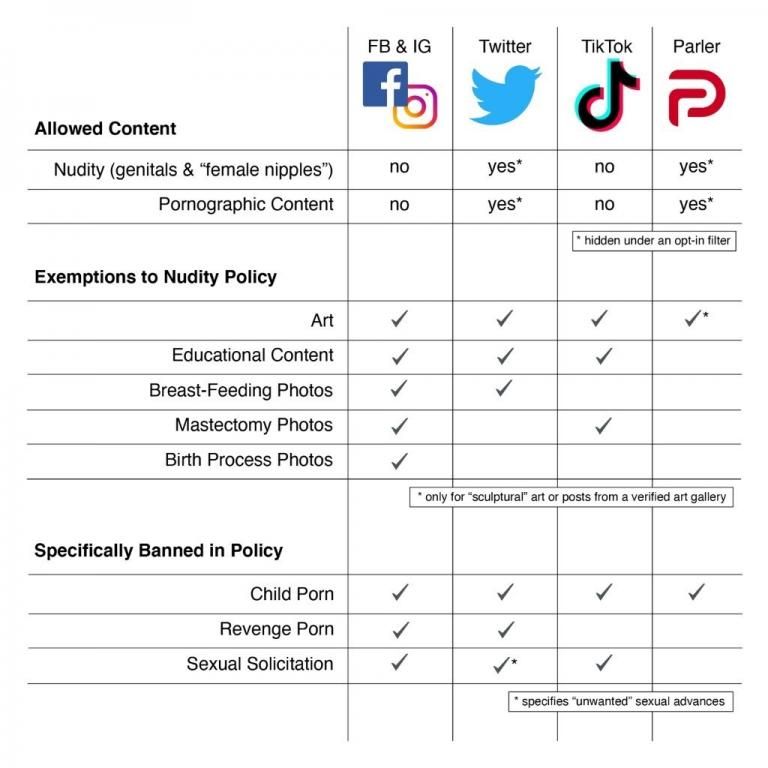Social media has been a hot topic for the past decade, especially regarding parenting. According to the Pew Research Center survey, almost half of US teenagers aged 13-17 reported being online 'almost constantly.' So should parents be concerned about what their teens are exposed to on social media?
Social media has many pros for teens, such as connecting with others and being able to express yourself. It also comes with risks such as exposure to harmful content, self-esteem issues, and safety. A recent study revealed that nearly half (46%) of children and teens ages 13-17 saw content on social media that they believe should not be allowed. Even though these teens come across concerning content almost daily, only 7% said they report the posts. 1
Let's start with the facts.
Did you know that most social media platforms have a sex policy, specifically with visual content such as nudity and pornography? Although there are policies, the implementation of these policies aren’t perfect. Protect Young Eyes, an organization that seeks to defend kids from inappropriate and harmful internet content, reported five different hashtags on Instagram linked to pornography a minimum of 50 times over five days. During this length of time, no action was taken by Instagram. 2
Nudity is not the only concern on various platforms. Influencers and regular people are also posting their thoughts about sex. By the time today's young person reaches 19, they have been bombarded by easily accessible, graphic content that is being taught as 'good' sex. Some of these explicit contents are often aggressive and misogynistic and discuss spanking, anal sex, light choking, and much more. 3
Although most schools have some form of sex education, most curriculums focus on avoiding pregnancy and sexually transmitted diseases rather than addressing healthy relationships. Unfortunately, many students are turning to social media to learn about sex: it's free, ubiquitous, and private.
So should you have your kids stop using social media entirely? Well, that's up to you, but various resources exist to set up parental locks within social media apps. No tool can replace having an educational and honest conversation about online safety, but setting up parental controls is a great asset. In August of 2022, Popular Science released a great article that helps navigate parental settings within the most common social media apps.
What’s next.
When you're unfamiliar with the social media apps your kids use, it can be challenging to know how to start the discussion. Screen Sanity, an organization that seeks to help families and communities pursue digital health, has created guides that help families take a 'driver's ed approach' to device introduction and safety.
Communicating about social media with your teen is just the start! We encourage you also to start or continue having conversations about sex and relationships with your kids. According to Harvard's 'Making Caring Common' project, subjects such as finding love, keeping love, and dealing with break-ups were questions that 70% of 18-25 year-olds wished their parents had discussed more with them.
Having the discussion.
So, how do you begin the social media conversation with your kids?
First, you'll need to take the most challenging step: start the discussion. This can be awkward and difficult at first, but it gets easier as you continue discussing what your teen or child sees on social media.
Not sure how to start or what questions to ask? The
Family Dinner Project has a great blog that can help you start conversations based on specific social media situations. The most beneficial questions are not accusatory but inquisitive instead. Work to minimize the downside and maximize the upside of social media. Then come together for additional conversation where change is needed.
Is talking about sex and social media with your kids awkward and difficult? For most people, it is. But, don’t let that stop you. Start now and just keep building on it. Whether they seem interested or not, most likely, deep down they want to talk about it. You’ve got this!






